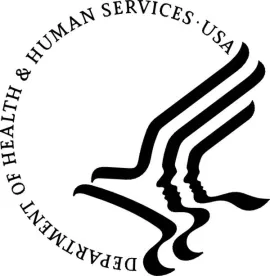On Thursday, 10 December 2020, the Department of Health and Human Services (HHS), Health Resources and Services Administration (HRSA) issued a pre-publication copy of the long-awaited 340B Drug Pricing Program Alternative Dispute Resolution (ADR) Final Rule.1 The Final Rule was issued more than 10 years after the Affordable Care Act (ACA) amended the 340B statute to require the Secretary of HHS to promulgate regulations establishing and implementing a binding ADR process to resolve certain disputes between covered entities and manufacturers.2 The ADR Final Rule is expected to be published in the Federal Register on 14 December and go into effect on 13 January 2021. However, release of the ADR Final Rule now has been driven by litigation filed in October by Ryan White Clinics for 340B Access and the National Association of Community Health Centers (which represents Federally Qualified Health Centers (FQHCs)), in part, asking a federal district court to compel the Secretary of HHS to issue the 340B Program ADR Rule in response to manufacturer actions to limit 340B Program contract pharmacy replenishment.
Below is a high-level summary of the ADR Final Rule.
340B ADR BOARD AND PANELS
The ADR Final Rule establishes a six-member “340B Administrative Dispute Resolution Board” with equal numbers of officials from each of HRSA, the Centers for Medicare and Medicaid Services (CMS), and the HHS Office of the General Counsel. From that board, a three-member “Administrative Dispute Resolution Panel—one member from each HHS division—will be chosen by the HRSA Administrator. There will also be one ex-officio non-voting member chosen from HRSA Office of Pharmacy Affairs (OPA) staff. These members must have specific experience, are subject to conflict of interest screenings, and can be removed for cause.3
CLAIMS
Covered entities and manufacturers may initiate claims seeking monetary damages or equitable relief by filing a petition to HRSA and notifying the other party within three days of the filing to HRSA. The petition must satisfy certain pleading requirements.4
-
Damages sought must exceed US$25,000. HRSA specifically notes that the ADR process is meant to be a last resort and not meant to supplant good faith efforts to resolve disputes). The $25,000 disputed amount may include a request for equitable relief if the relief is expected to result in a value of $25,000 in the following 12 month period.5
-
Claims from covered entities are limited to allegations of being overcharged, including limiting a covered entity’s ability to purchase drugs at 340B prices. Manufacturer claims are limited to allegations of diversion or duplicate discounts, but only after it has conducted an audit of the covered entity as permitted under the statute. Both must provide documents sufficient to demonstrate the allegations in the claim.6
-
Two or more covered entities may jointly file claims of overcharging by the manufacturers subject to certain criteria, and associations or organizations may file claims on behalf of multiple covered entities. Manufacturers may consolidate claims as well but will not be permitted to file such consolidated claims through trade associations or organizations.7
INFORMATION REQUESTS
The ADR Panel may request additional information from either party, and may permit covered entities to engage in limited discovery to obtain relevant documentation from manufacturers.8
CONDUCT OF THE ADR PROCEEDING
HRSA notes multiple times that the ADR Panel will be given wide latitude to define the proper course of conduct, scope of the ADR process, and any additional instructions necessary or desirable for the ADR proceedings.9
FINAL AGENCY DECISIONS
The ADR Panel will review the evidence submitted by the parties and determine whether the evidence supports violation under the 340B statute under a “preponderance of the evidence” standard. Decisions of the ADR Panel are precedential and constitute final agency action subject to judicial review. As such, HRSA intends to publicly issue all ADR decisions.10
LOOKBACK PERIOD
The ADR Rule establishes a limit for claims submitted within three years of the alleged violation, which HRSA notes is consistent with the current three year document retention period requirement.11
As noted above, in October and in response to those manufacturer policies, Ryan White Clinics for 340B Access and the National Association of Community Health Centers (which represents Federally Qualified Health Centers (FQHCs)) filed complaints in federal court, in part, asking the court to compel the Secretary of HHS to issue the 340B Program ADR Final Rule.12
The issuance of the ADR Final Rule has likely rendered those claims in the lawsuits moot. That said, the complaints also contain other claims for declaratory and injunctive relief related to the manufacturers’ controversial contract pharmacy policies. In this regard, the ADR Rule will likely be a pathway to meaningful judicial review of HRSA’s authority on contract pharmacy arrangements. The new ADR process will likely lead to covered entities claims against multiple manufacturers related to the recent manufacturer policies limiting replenishment at contract pharmacies discussed here and here. If so, it also raises the potential that a court could review HRSA’s underlying statutory authority in establishing contract pharmacy arrangements. Specifically, if a 340B ADR Panel were to determine that the manufacturers’ contract pharmacy policies resulted in overcharges to covered entities, the manufacturers could seek judicial review and reversal of such a HRSA final agency decision in a federal court.
Notably, the American Hospital Association issued a statement acknowledging that the “long overdue” Final Rule is an important step toward protecting 340B hospitals and other covered entities, but stated that the ADR process alone “is not sufficient to address drug companies’ repeated illegal attempts to attack 340B hospitals, and the patients and communities they serve [including] recent efforts to undermine the program by limiting the distribution of certain 340B drugs to eligible hospitals and encouraged HRSA to take swift action to halt those manufacturer practices.”13 340B Health CEO, Maureen Testoni agreed, stating “[Th]e ADR is not an appropriate or timely solution for refusals by Eli Lilly, AstraZeneca, Sanofi, Novartis, United Therapeutics, and Novo Nordisk to offer the 340B pricing that federal law requires. These manufacturer actions are a clear violation of the 340B statute, and the Department of Health and Human Services (HHS) has the authority – and the responsibility – to block them immediately and order recourse for affected hospitals.”14 As of publication of this Client Alert, the Pharmaceutical Research and Manufacturers of America (PhRMA) had not issued a public statement on the ADR Final Rule.
Footnotes
1 See (10 Dec. 2020).
2 Section 7102 of the Patient Protection and Affordable Care Act (Pub. L. 111-148), as amended by section 2302 of the Health Care and Education Reconciliation Act (Pub. L. 111-152) (adding section 340B(d)(3) to the Public Health Service Act).
3 42 C.F.R. § 10.20.
4 Id. at. § 10.21(a).
5 Id. at. § 10.21(b).
6 Id. at. § 10.21(c).
7 Id. at. § 10.21(e).
8 Id. at. § 10.22.
9 See Id. at. § 10.23.
10 Id. at. § 10.24.
11 Id. at. § 10.21(d).
12 See Complaint, Ryan White Clinics for 340B Access v. Azar, D.D.C. (No. 20-cv-2906); See Complaint, Nat’l Assn. Comm. Health Ctrs. V. Azar, D.D.C. (No. 20-cv-03032).
13 Am. Hosp. Ass’n, AHA Statement on Final 340B Alternative Dispute Resolution Rule (10 Dec. 2020).
14 340B Health, Statement on HRSA’s Final 340B Alternative Dispute Resolution Rule (last visited 10 Dec. 2020).




 />i
/>i

